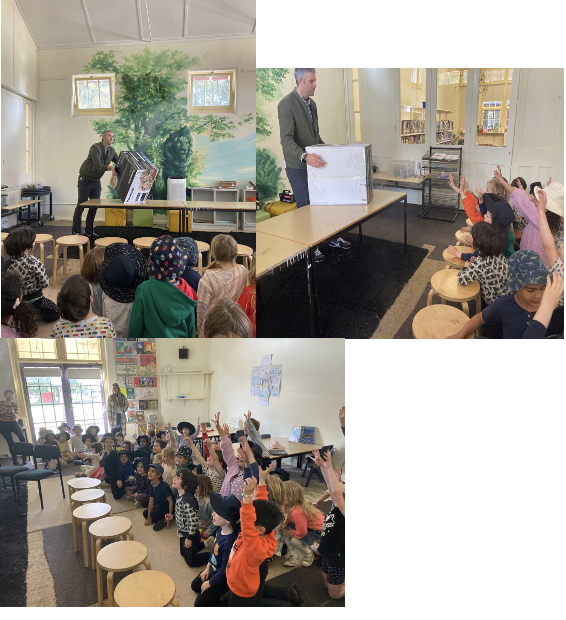Over the past few weeks, we have worked in groups to design and create large-scale diagrams of our time machines. During this workshop, we discussed time, simple machines, and numbers to help us in our project.
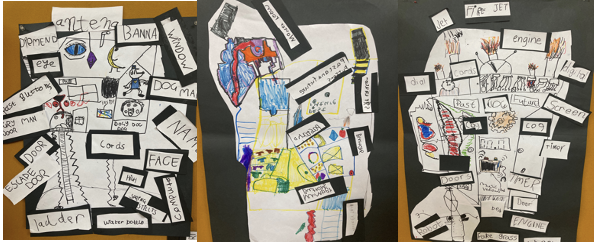
We have started our narratives by exploring the idea of returning to the past. Some students have already begun drafting sentences, while others are making props to help tell their stories in the art studio.
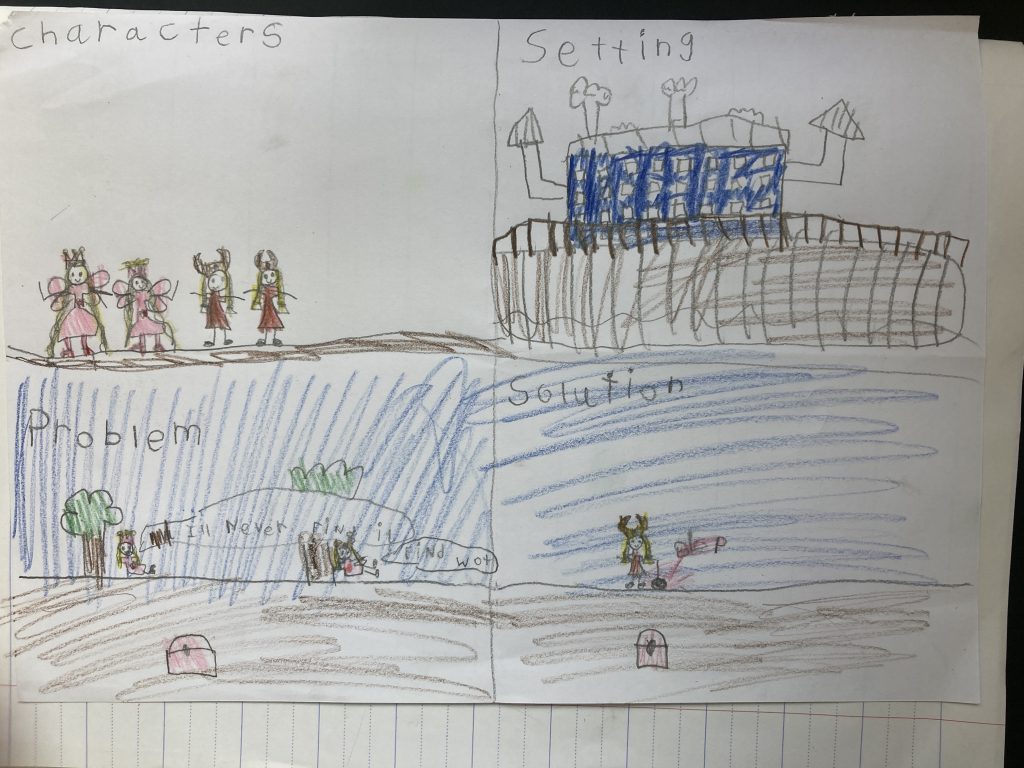
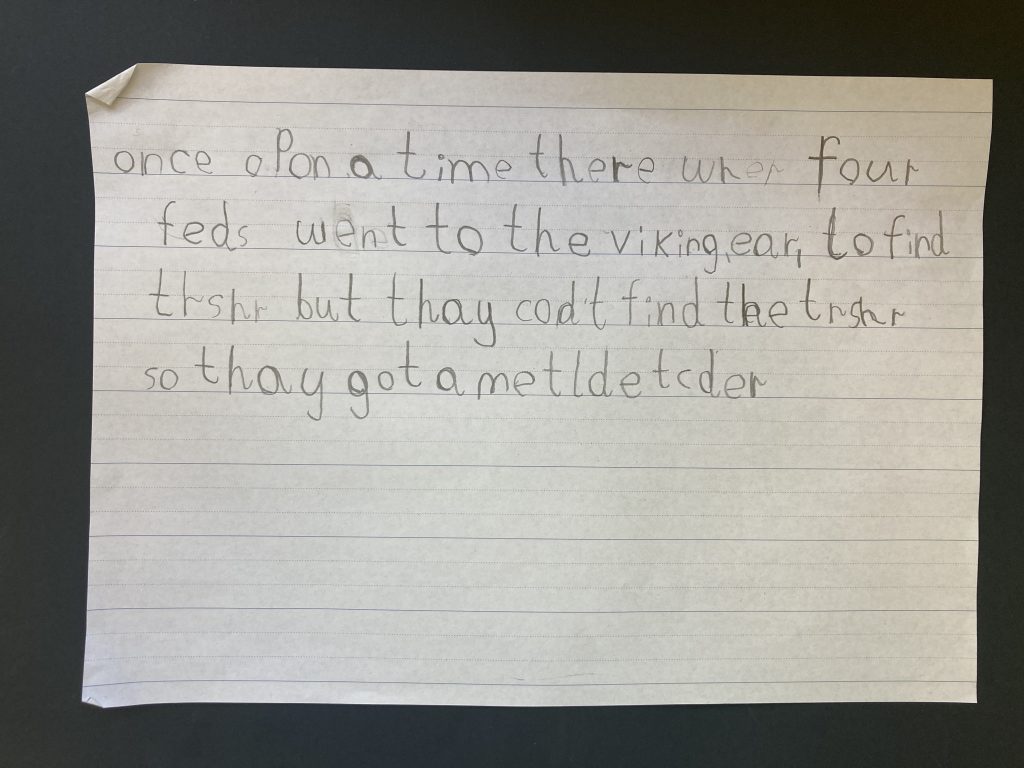
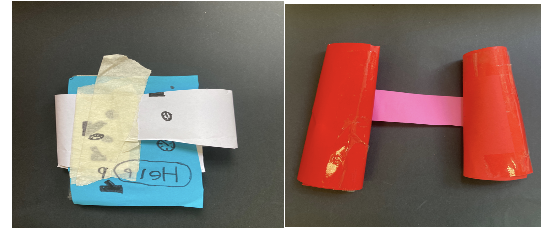
In addition, we created a list of items we would take with us on our time travels and then made them in the art studio.
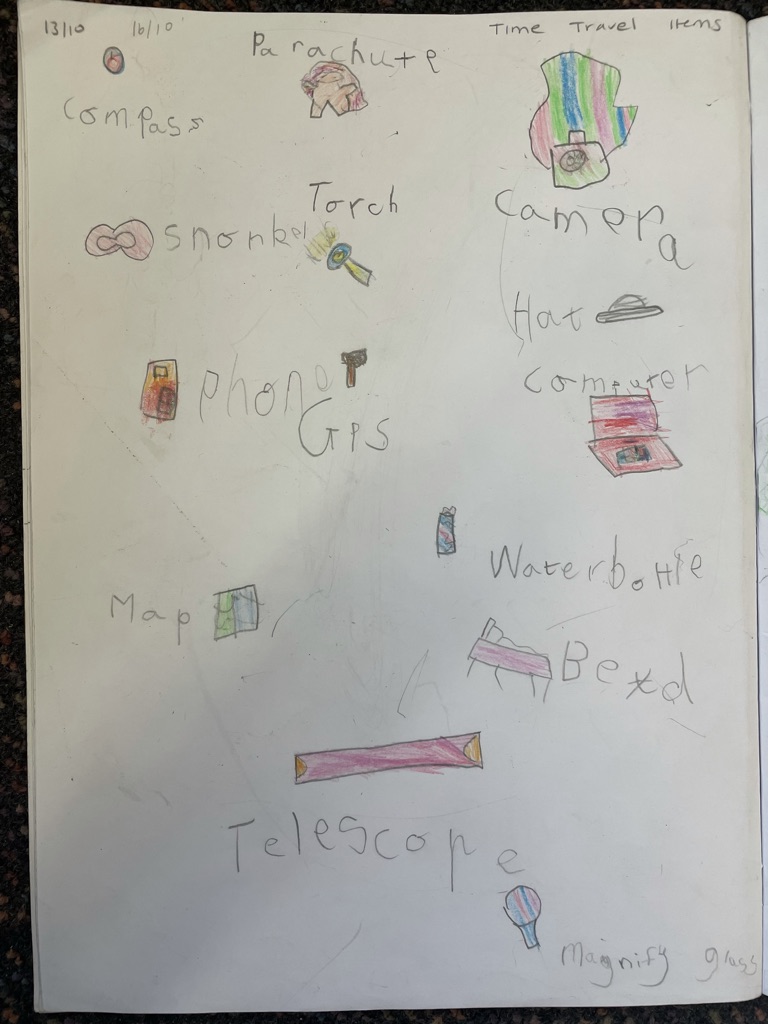
In the performance space, we have been working in groups to construct pyramids out of Lego. We also learned about simple machines and drew them, and some of these machines have ended up in our time machines, such as the cogs and levers.
We have also been investigating digital clocks and the countdown process, using various tools such as commercial kitchen timers and a large-scale digital clock in the learning commons. We even played “Beat the Clock” to see how many star jumps we could do in a minute.
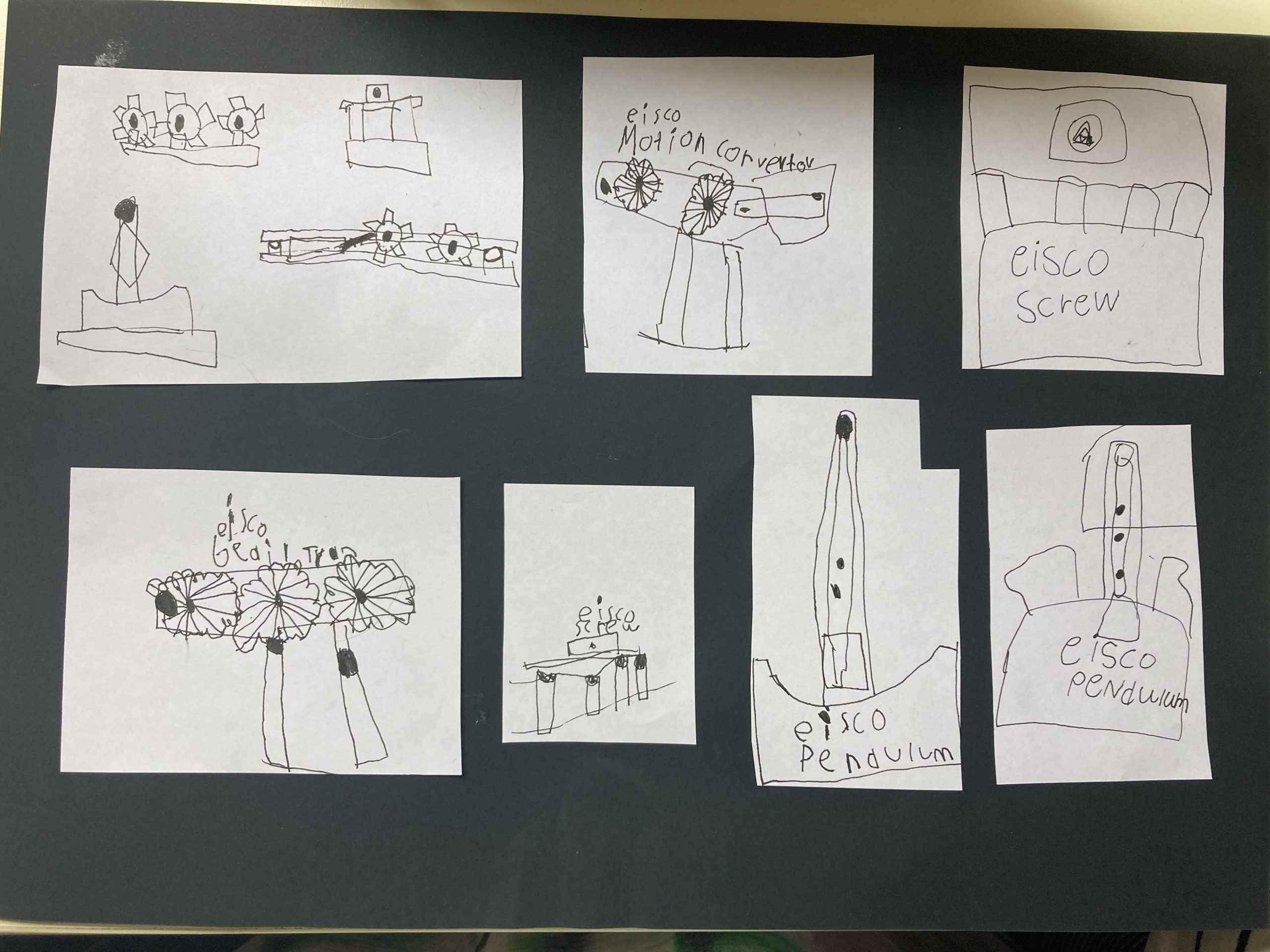
We were fortunate to have Robert demonstrate a science experiment to the entire Prep neighbourhood.
Science experiments can help you stay curious and creative, as well as improve your problem-solving skills.
During the experiment, the children shared their knowledge of science. Rafa mentioned the need for electricity and various materials, while Rhys believed intelligence was necessary. Raphael recognised the importance of conducting experiments, and Robert explained that science is about observation. He used an ordinary box to demonstrate this point, explaining that it was full of molecules and that by waving air on our faces, we could see the impact of those molecules on the surrounding objects.
Robert then demonstrated a vortex cannon, which initially appeared not to affect the box. He used paper cylinders to observe the canon and explained that it fired air molecules. The children were fascinated by this and could observe the air being fired from the canon. Robert then added smoke to the cannon to make it easier to observe the molecules.
The children were asked who was being a good scientist. Arlo explained that you needed to know how to do things and have knowledge no one else has. The importance of paying attention and observing was highlighted, and the children were asked who had noticed something. Ollie saw that the air had come out of the holes and had been squeezed when the box was pushed.
Finally, Ronan asked if there was anything else inside the box besides the smoke.
We are looking forward to our next excellent experiment with Robert.
